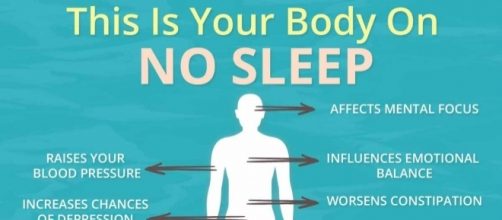For decades it has been stated that older adults do not need as much sleep as they did when they were younger. This was good news for seniors who found they were no longer sleeping through the night. If you believe that less sleep is OK now that you are over 50, you may want to reconsider. According to the Global Council on Brain Health, a lack of shut-eye can cause both depression and dementia.
Sleep affects the brain
The Global Council is comprised of an international team of health experts. AARP vice president Sarah Lock is the executive director.
In the May edition of the "AARP Bulletin," Lock says that it is a myth that older individuals need less shut-eye as they age. She added that sleep habits may change as people age, but they do not indicate that less sleep is normal. Lock emphasized that a Lack Of Sleep can be harmful, leading to both dementia and depression.
The AARP article indicates that more than half of Americans over the age of 50 report waking up and not being able to get back to sleep. Additionally, 40 percent of older Americans say they realize they are not getting enough sleep each night. The study concluded that everyone, no matter what age, should obtain at least 6 or 7 hours of sleep each night. By obtaining this minimum nightly, our brains will be protected as we age.
And we reduce the risk of depression and dementia.
Increased risk for Alzheimer's Disease
The information in AARP confirms the results of a 2015 study done by UC Berkley's Neuroimaging Lab. This study takes the lack of sleep a little further. Scientists discovered that a lack of deep non-REM (rapid eye movement) sleep can possibly cause the brain to become vulnerable to Alzheimer's disease, which is a form of dementia. They also concluded that beta-amyloid, a protein suspected in playing a part in Alzheimer's, is lacking in adults who are sleep deprived on a regular basis. If you are over the age of 50 and having problems sleeping, there are changes you can make that will help you increase the amount of sleep you get each night.
How to improve sleep patterns
AARP gives three suggestions that may improve the amount of shut-eye you obtain nightly. The first one is to avoid long naps during the day. They suggest that if you take a snooze, it's in the early afternoon and for no more than 30 minutes. The second recommendation is to quiet things down before going to bed. Decrease conversation and have a relaxed atmosphere before turning in for the night. The final thing to do is take a warm bath, and wear socks to keep your feet warm.


